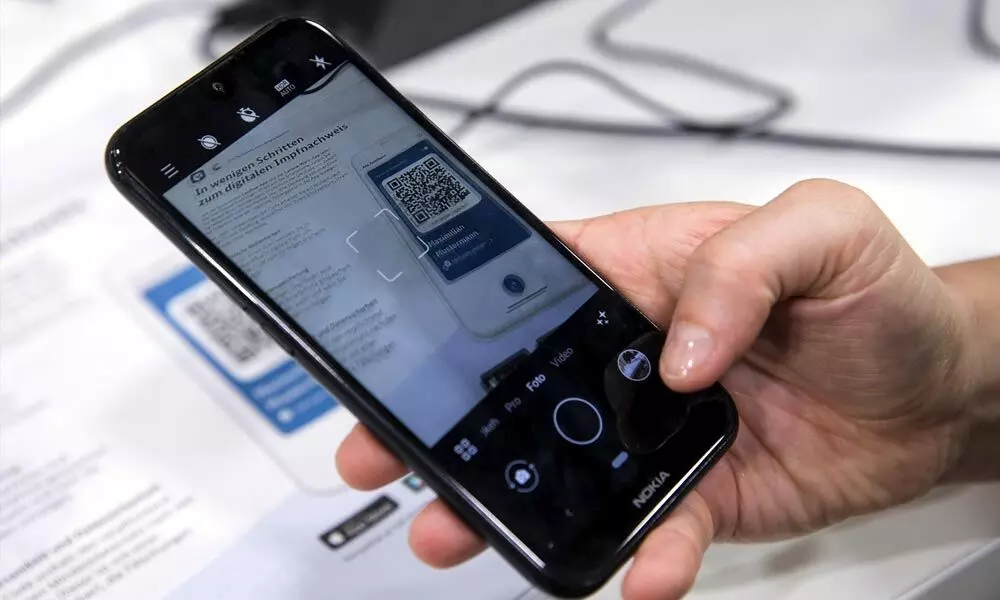Paying with e-CNY? First show digital ID
Digital currencies are almost here, many things we still don’t know about them is their usage overseas: How helpful will one country’s electronic cash be in another?
image for illustrative purpose

Digital currencies are almost here, with China's e-CNY possibly off the block as early as the 2022 Beijing Winter Olympics. But among the many things we still don't know about these new payment instruments is their usage overseas: How helpful will one country's electronic cash be in another?
All we know is that digital cash will be a direct claim on a central bank, just like its physical counterpart. But there the similarity ends. There's a whole money-changing industry ready to swap - for a fat fee - our banknotes for different ones that can be used where we're going. However, when the cash resides in a wallet on our smartphones, tourists may not be able to spend it at a coffee shop or a curio store overseas if merchants aren't allowed to receive foreign digital currencies.
Commercial banks have solved this problem. By using intermediaries like Visa Inc. and PayPal Holdings Inc., they've made our claims acceptable as payments in other countries. But for monetary authorities to do this, every one of them will need a way to verify the identities of 8 billion people. That's because, in theory, anyone on the planet can land in any country with purchasing power acquired abroad.
Unlike cash, or cryptocurrencies like Bitcoin, digital money issued by central banks won't be pure tokens. Either the issuing monetary authority, or some private players it tasks with the job, will keep debit and credit accounts. Accounts involve identities, and - when the setting is international - questions of money laundering, terrorist financing and national security arise.
China's digital yuan trials with foreign athletes next year will probably involve giving them some e-CNY to spend locally. That's just marketing. It's when the Chinese try to use it overseas that the challenges of sharing identities across borders will become more complex. Beijing wants to promote the currency internationally as an alternative to the all-important dollar. But will it be comfortable if the Federal Reserve wants access to a database that would check the identities of all Chinese visitors in the US, potentially tracking what they're buying with digital yuan, where and when? Will Washington tolerate the same when a digital dollar is ready?
There are three ways out of the logjam, according to the latest annual economic report by the Bank for International Settlements. The simplest solution may be for two different payment authorities to enhance compatibility of their technical and regulatory standards. Going a step further, they can interlink their systems and share some interfaces, eliminating middlemen. Finally, several can get together on one platform for their independent digital currencies. Each of the three approaches "would require increasingly intertwined identification schemes, but in all cases, ID would remain at a national level," the BIS says.
The third model - a jointly operated payment system supporting multiple central bank digital currencies - is the most promising from a user's perspective. After the Hong Kong Monetary Authority began experimenting with the Bank of Thailand to develop a common platform, they were joined by the People's Bank of China and the central bank of the United Arab Emirates. The project is now called m-CBDC Bridge. Even in such a highly cooperative setup, a single ID system would not be needed, the BIS says.
It's unlikely that the US and China will agree to join their digital currencies at the hip, given their growing mutual distrust. What to do then? In some ways, the pandemic may be offering clues to solve the problem.
My vaccination certificate in Hong Kong sits on my Apple Wallet, with name and identity numbers partially masked. It has a tamper-proof QR code, which can be read by immigration authorities anywhere. To achieve this, Apple and the health authority had to verify my identity via my phone number and my unique Hong Kong ID. It took only a few seconds, because both of them independently know a lot about me, though only a tiny bit is to be shared with border control officials. As long as other countries recognize Hong Kong's vaccination certificates, the electronic version, protected by the phone's facial or fingerprint recognition feature, would be accepted for international travel. A similar system could work for international payments with digital cash. For a cup of coffee, it should be sufficient that a competent national authority has verified that you are who you say you are, and you have what you say you do: unspent money. As long as the country accepting foreign digital cash is satisfied with the issuing authority's anti-money-laundering standards, nothing more is required. The Fed can credit the cafe's wallet with FedCoin and the People's Bank of China can debit e-CNY from yours, and the two can settle their accounts without telling each other anything more about you. Travelers save on high foreign-exchange conversion costs built into card payments.
Without this level of coordination, e-CNY, FedCoin, Britcoin and the digital euro will all remain trapped in silos, making them complete non-starters in a globalized world and paving the way for the likes of Diem, synthetic private-sector tokens backed by reserves maintained in one or several official currencies. The growing popularity of cryptocurrencies is already a headache for central banks; they won't want their legal tender to lose out to these so-called stablecoins. So they'll cooperate - even if they don't collaborate. Your country's digital cash may be more welcome in some places than others. But it'll work everywhere. (Bloomberg)

